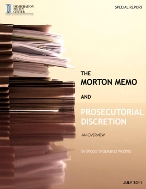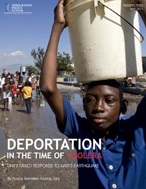

 By Shoba Sivaprasad Wadhia, Esq.
By Shoba Sivaprasad Wadhia, Esq.
On June 17, 2011, Immigration and Customs Enforcement (ICE) Director John Morton issued two significant memoranda on the use of prosecutorial discretion in immigration matters. Prosecutorial discretion refers to the agency’s authority to not enforce immigration laws against certain individuals and groups. The primary memo (the Morton Memo on Prosecutorial Discretion) calls on ICE attorneys and employees to refrain from pursuing noncitizens with close family, educational, military, or other ties in the U.S. and instead spend the agency’s limited resources on persons who pose a serious threat to public safety or national security. Morton’s second memo focuses on exercising discretion in cases involving victims, witnesses to crimes, and plaintiffs in good faith civil rights lawsuits. The memo instructs “[a]bsent special circumstances or aggravating factors, it is against ICE policy to initiate removal proceedings against an individual known to be the immediate victim or witness to a crime.”
A closer look at the Morton Memo on Prosecutorial Discretion reveals that it reaffirms many of the principles and policies of previous guidance on this subject. The memo, however, takes a further step in articulating the expectations for and responsibilities of ICE personnel when exercising their discretion.
Published On: Wed, Jul 20, 2011 | Download File




